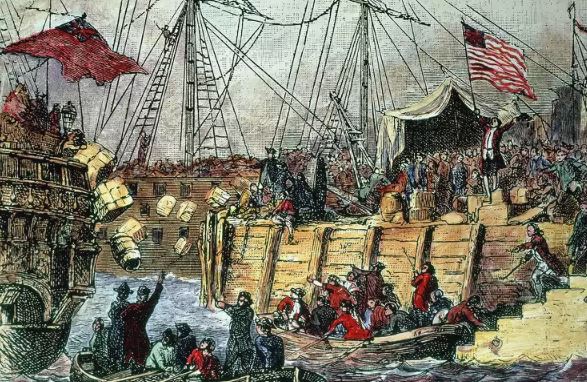The Boston Tea Party was an act of civil disobedience. On Dec. 16, 1773, fed up Bostonians frustrated with British rule stormed three British ships and silently cheered on by thousands on shore, helped catalyze the American Revolution.
“This is the most magnificent movement of all,” John Adams wrote in his diary the day after the tea was dumped overboard. “I can’t but consider it as an epocha in history.”
There’s no denying the whole affair set the colonies on a path that led directly to the Revolutionary War and the birth of a new country.
The men who boarded these ships and took on this grave risk weren’t the more famous Sons of Liberty members, remembered in history books and paintings. These were generally ordinary citizens: wallpaperers, house painters, shipwrights, barrel makers, cobblers, coopers.
The patriots hauled chests of tea, about 92,000 pounds, out of the cargo holds of three ships, broke them open with axes, and chucked the tea and crates overboard into the chilly Boston Harbor.
Patriot John Adams wrote to James Warren enthusiastically about the audacious stroke: “The Dye is cast: The People have passed the River and cutt away the Bridge: last Night Three Cargoes of Tea, were emptied into the Harbour. This is the grandest, Event, which has ever yet happened Since, the Controversy, with Britain, opened!” He added, “The Sublimity of it, charms me!”

